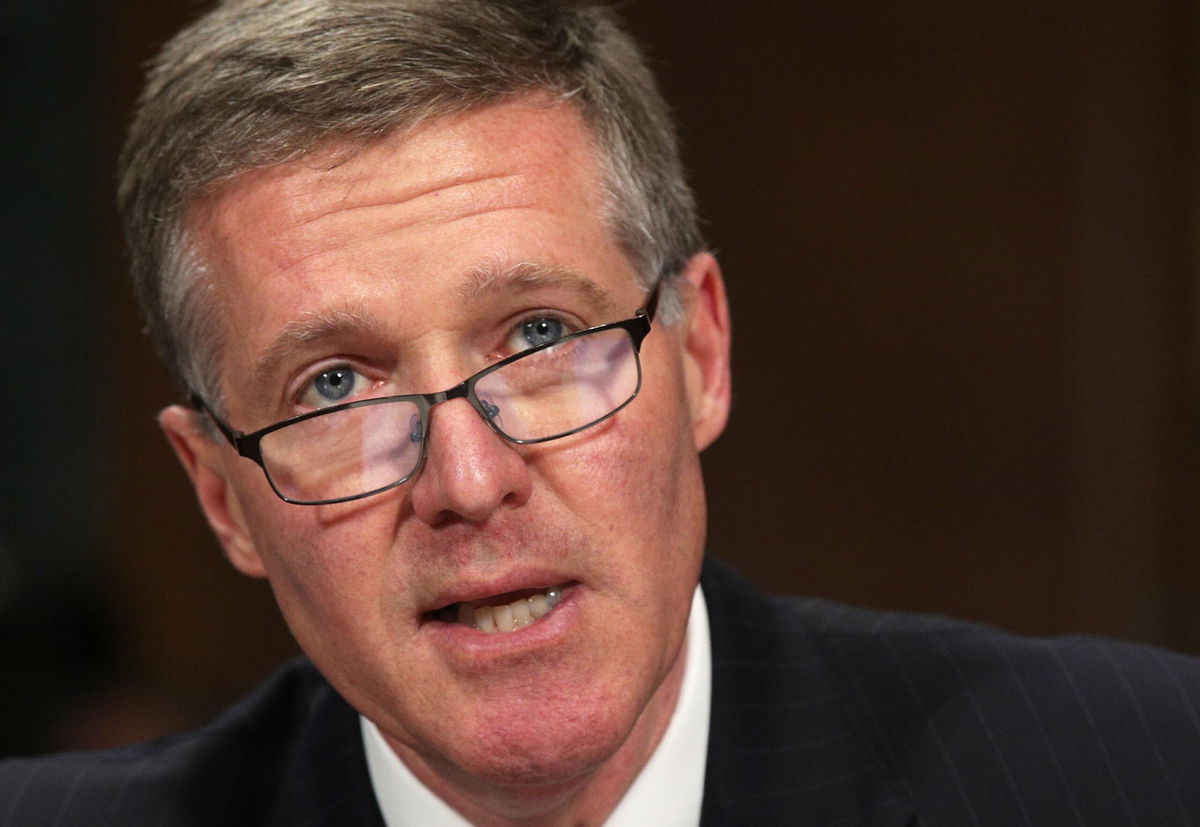Homeland Security intel chief describes revamp of department amid radicalization in the US

Extreme public discourse and divisive politics of recent years is in part to blame for pushing people on the margins of radicalization “over the line
By Geneva Sands, CNN
The Department of Homeland Security is reviewing the structure and mission of its intelligence division as the US navigates a period of heightened polarization and radicalization, the agency’s intel chief said in an interview with CNN.
Extreme public discourse and divisive politics of recent years is in part to blame for pushing people on the margins of radicalization “over the line,” Ken Wainstein, the DHS Under Secretary for Intelligence and Analysis, said in a wide-ranging interview in the wake of several high-profile mass shootings and an attempted arson attack on a New Jersey synagogue.
“[Y]ou’re hearing sharp-edge commentary directed against different groups and religious groups more. And I think that that kind of language stirs people up,” Wainstein said.
Wainstein, who took on the top DHS intel job in June, called it a “troubling period in American history,” where acts and threats of violence against people for their beliefs are on the rise.
“People say things publicly now, seemingly, with the feeling of being able to say things that they wouldn’t have felt free to say years ago,” he said.
His comments come a year after a hostage situation unfolded at a synagogue in Colleyville, Texas, an incident that sparked fear among religious communities. On Sunday, a man threw a Molotov cocktail at a New Jersey synagogue in an arson attempt, police and the synagogue said, prompting renewed concern.
According to Wainstein, the United States is also in a “more divided time politically,” which has generated a seeming willingness to engage in more heated rhetoric against local groups.
The DHS intelligence office monitors a range of issues from violent extremism to migration patterns and is the only member of the intelligence community that is required to disseminate information to state and local agencies.
Wainstein became the first Senate-confirmed head of the intelligence office in the wake of several Trump-era scandals, reports of low morale at the agency and concerns that the division is still struggling to find its place in the intelligence community nearly 20 years after its beginnings in the wake of 9/11.
Over the last several weeks, a spate of deadly mass shootings has torn apart communities and rattled the public — an issue of “intense focus” for Wainstein’s office.
Eleven people were killed in a mass shooting at a dance studio on Lunar New Year in Monterey Park, California. Days later, seven people were killed in two shootings in Half Moon Bay, California, a small coastal community in the San Francisco Bay area. On Monday, 11 people were injured in what police called a “targeted attack” in Lakeland, Florida.
“It’s just devastating to see the frequency with which these mass shootings are taking place these days,” Wainstein said.
Part of that effort is working with partners within DHS to provide guidance about indicators that might show whether somebody is heading down a path toward radicalization, according to Wainstein.
But he acknowledged some of these recent shootings appear to be random or based on personal motivation, which can be hard to predict, “even with the best intelligence.”
Wainstein, assumed the role as DHS’ chief intelligence official after several years without a Senate-confirmed leader, managing an approximately 1,000-person workforce,
During the Trump administration, the office was embroiled in a series of controversies, including coming under scrutiny for not producing a bulletin or warning about the potential for violence at the US Capitol on January 6, 2021.
A whistleblower also filed a complaint alleging that top political appointees at DHS repeatedly instructed career officials to modify intelligence assessments to suit former President Donald Trump’s agenda by downplaying Russia’s efforts to interfere in the US and the threat posed by White supremacists.
Last year, the DHS Office of Inspector General found that the department delayed and altered an intelligence report related to Russian interference in the 2020 election, making changes that “appear to be based in part on political considerations.”
Wainstein discussed the ongoing “360 review” of the agency, which is focused on organizational structure, as well as mission priorities, he told CNN, noting that it has a very broad mandate.
One of the purposes of the “review of prioritization,” Wainstein said, is to “make sure that we find, identify and focus our resources on those sweet spots, where we are the go-to people who really add the best or the most value.”
When taking the role, Homeland Security Secretary Alejandro Mayorkas directed him to “bring leadership and management to the office,” meaning he was tasked with building a management structure that supports the workforce.
Waintstein said he has implemented several workforce initiatives like, reinstating “family day” and hosting regular award ceremonies to recognize strong performance.
“I think people in the ranks are energized about the mission, or about the possibility of sort of doing things in different way,” he said.
The-CNN-Wire
™ & © 2023 Cable News Network, Inc., a Warner Bros. Discovery Company. All rights reserved.
